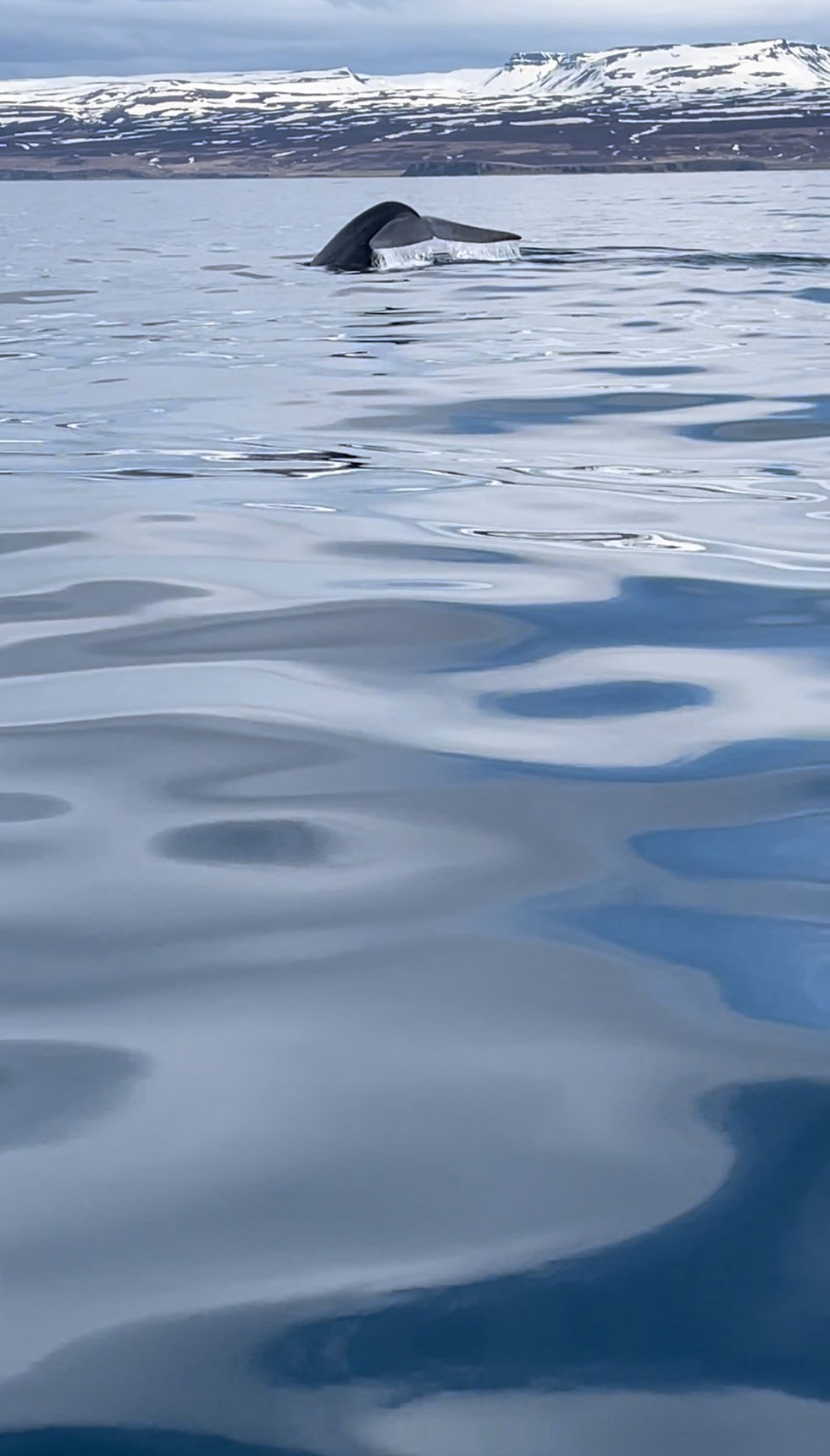Post 1 - The voices of whales
- alexadler42
- Jun 20, 2023
- 3 min read

In recent history, I’ve had the distinct pleasure of being able to observe whales and orcas not in some sad aquarium tank, but in their natural, expansive, and free habitat—the ocean. I’ve seen them in both Norway and Iceland, and both times I was both struck with a sense of awe and made to be incredibly curious about how these majestic creatures live their lives.
While I am less than a novice when it comes to studying whales, my curiosity did spur me to learn a thing or two. Of the knowledge I gained, something about whales and dolphins stood out, though it wasn’t, as you might suppose, their unmatched size on this planet we call Earth. It wasn’t their ability to hold their breath for what would seem to us an unnatural amount of time. It wasn’t their ability to put away literal tons of food every single day. All these facts were impressive, but the thing that stood out to me most about whales and orcas was their voices.
Whales’ voices are remarkable, varied, and extremely powerful. Researchers estimate that the lowest frequencies of whale voices can reach from Reykjavik, Iceland all the way to Brisbane, Australia. This distance is hardly even comprehensible. Yet there’s more than distance of propagation to characterize the whale’s voices as powerful.
Let’s take a dive (pun completely intended) into the power of the voice of the sperm whale. Like all toothed whales, it uses its voice for echolocation. This serves to help it navigate dark or murky water as well as find prey. It is impressive enough that the sperm whale’s voice functions as a sensor, but it doesn’t stop there; it also serves as a weapon. So powerful is the cry of the sperm whale that, when emitted, it overwhelms the nervous system of the giant squid. The giant squid, stunned, is then rendered completely powerless to escape the sperm whale. If you think that’s weak on the part of the squid, a human would be killed instantly by the cry of the sperm whale.
What about the humpback whale? It’s been observed communicating from the West Coast of Australia to other whales all the way over on the East Coast of Australia. Better than that, it’s been observed doing what we would call singing if we could recognize it as music. You see, they have a mating season song that they remember from year to year. Each year, a particularly creative male will dust off last year’s tune, make some slight modifications to it, then sing it for miles and miles. The other whales pick it up and join in the singing. The cycle repeats itself the following year in a never-ending cycle of remembrance and creative modification. They’ve also been observed using coral reefs as megaphones to amplify their sound to increase the distance it travels.
If you’re not impressed by all that, if you think you must be an apex predator have any street cred, then turn your eyes (and echolocation if you’ve got it) to the orca. Technically a type of dolphin, the orca is the apex predator of the sea. Orcas travel with their family units and have numerous distinct sounds which they use to communicate with each other. The mothers of each pod, as the family units are known, pass on what they’ve learned to their young. They coordinate their hunts, as do humpback whales. Each orca pod has its own dialect that’s distinct from all the others. They grieve the loss of their young. If there is any other animal on the planet which deserves to be considered for the status of personhood, orcas ought to be at the front of the line. The Earth may belong to humanity, but the sea, which is far more expansive than the Earth’s very thin crust on which we reside, belongs to the orcas.
Perhaps one day we’ll learn to communicate with the orcas and whales alike, to decipher their language and to be able to respond to them in their own tongue. In the meantime, I hope that we do not make the error of assuming savagery or baseness simply because we have vastly different cultures and difficulty communicating. Sadly, this would be far from the first error of that sort in human history.
If you just look and see the whales and orcas as they are, without pre labeling them as animals or beasts, you cannot help but feel drawn to them, to their intelligence, and to entertaining the possibility of their personhood. You also cannot help but feel that the Earth, while we largely dominate it, cannot be only for humanity. There are others who are also here, who rightfully have some claim in calling the Earth theirs too.



Comments